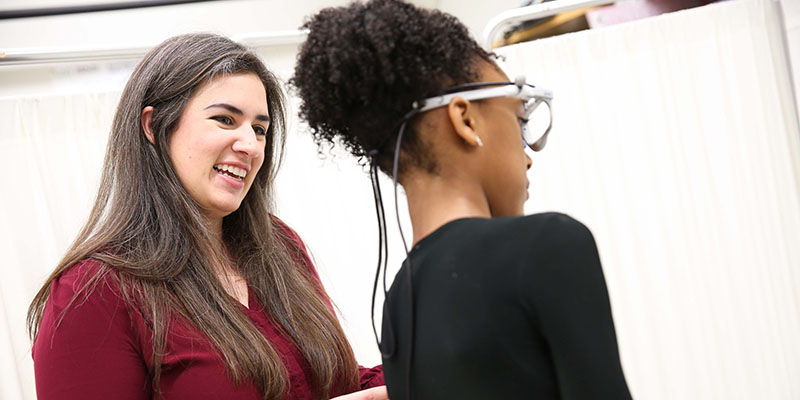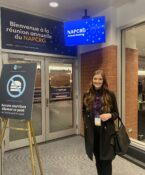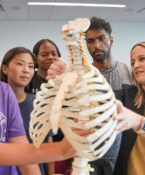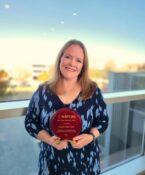Community invited to free autism event at UNTHSC
By Alex Branch
The nation’s largest autism research and advocacy organization will hold a free community science event that is open to the public Wednesday, Oct. 4, at UNT Health Science Center.
Autism Research Series: Discovery to SolutionsWhen: 6:30 p.m. to 8:30 p.m., Oct. 4 |
Leaders of Autism Speaks will tour the university’s Human Movement Performance Laboratory and learn about innovative autism research by Haylie L. Miller, PhD, Assistant Professor in the Department of Physical Therapy.
Autism Speaks’ President and Chief Executive Officer Angela Geiger and Chief Science Officer Thomas Frazier, PhD, will share the latest advances in research that supports people with autism and their families.
People with autism, their families, researchers, educators, policy makers, students and community members are invited to attend. The free event will be from 6:30 p.m.to 8:30 p.m. in the Medical Education and Training Building (MET), 1000 Montgomery St., Fort Worth.
“It’s a great opportunity to bring everyone to the table for a critical conversation about what we at UNTHSC do in partnership with the autism community, what Autism Speaks is doing nationally, and how researchers and stakeholders can work together toward the common goal of understanding and supporting the autism community in Fort Worth,” Dr. Miller said.
Dr. Miller holds National Institutes of Health and National Science Foundation grants that support her research investigating visuomotor integration in autism spectrum disorder, or the use of visual information to plan, execute and modify movement.
Autism Speaks is conducting a research series at locations across the United States where leaders share a new mission statement and updates on research the organization has funded. Autism Speaks requested UNTHSC host an event in part because of the autism research underway at the school.
Dr. Miller said she has invited her research participants on the autism spectrum and their families to attend the event, as well as community partners.
“Our lab works to understand and support people with autism, so that together, we can find ways to capitalize on their strengths and minimize the things that are difficult in their lives,” Dr. Miller said. “It’s important for everyone’s voice to be heard in these important conversations so that research is guided by what is relevant and meaningful to the autism community.”






Social media